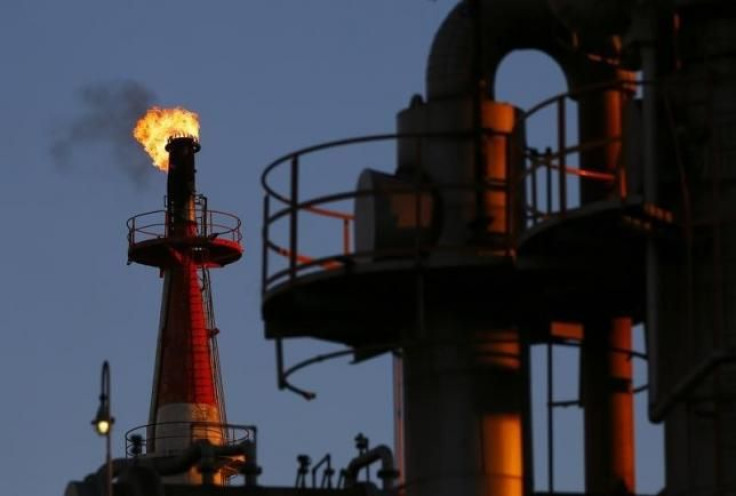Oil Prices Stabilize After Massive Selloff, But Outlook Remains Weak

Crude oil prices steadied on Tuesday, after posting one of their biggest selloffs this year in the previous session over Greece's rejection of debt bailout terms and China's ongoing stock market woes.
Front-month U.S. crude futures were trading at $52.93 per barrel at 0654 GMT (2.54 a.m. EDT), up 40 cents from the settlement on Monday, when an almost 8 percent drop pulled the contract down to levels last seen in April.
Brent crude was up 45 cents at $56.99 a barrel, following a more than 6 percent drop in the previous session.
Despite the slight increases, most analysts were bearish in their price outlook.
"Macroeconomic headwinds are rising — be it in the form of the collapse in the Chinese stock market, Greece's potential exit from the eurozone or a stronger dollar. So downside risk to Brent flat price persists," Energy Aspects said on Tuesday.
"Prices (for Brent) are effectively capped below $70 per barrel in the near term. Structurally, the market is about 1
million barrels per day oversupplied through end 2016," consultancy FGE energy said.
The oil glut could also deepen as major global powers and Iran are negotiating a nuclear compromise that could end sanctions against Tehran and open up oil exports into an already oversupplied market, although diplomatic sources told Reuters on Monday that important issues remain unresolved.
Traders said expectations of Iranian exports resuming on a larger scale by 2016 had pulled down forward oil prices more than those closer to the present.
Since June 1, forward prices for Brent January 2017 delivery have fallen by $6.5 per barrel to around $63.40.
U.S. prices have also been hit as more global supplies and cheap Brent could put pressure on U.S. shale producers.
U.S. prices for delivery in December 2016 fell to a new 2015 low of under $58 per barrel this week.
The outlook for oil demand also looks grim as Greece struggles to remain in the euro and key consumer China, where a 30 percent slump in stock markets since June prompted the government to resort to an unprecedented series of support measures over the weekend to stabilize shares, which only briefly managed to prevent shares from tanking further on Tuesday.
Yet not all analysts are bearish in their oil price outlook.
U.S. PIRA Energy Group said in a note published on Tuesday that "the worst of oil market imbalance is over with inventory overhang being much less than generally expected" and that "longer-term supply/demand fundamentals are bullish".
© Copyright IBTimes 2024. All rights reserved.











